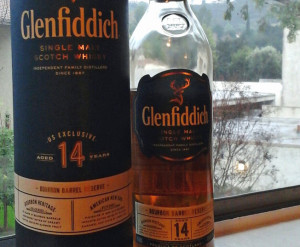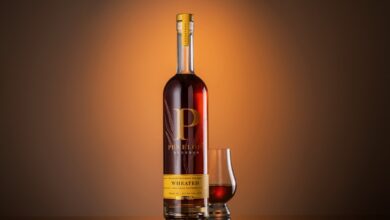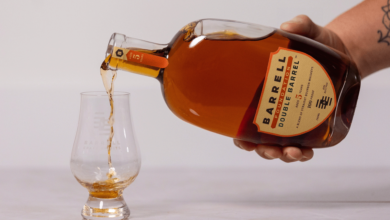Scotch Whisky Picks For Bourbon Drinkers
The Bourbonphile’s Guide To Gateway Scotch
By Richard Thomas

(Credit: Pernod Ricard))
Bourbon and Scotch are the two giants of world whiskey, and while I could cite numerous statistics to that effect, the consumer sees this in breadth and depth of brands and expressions available to them in bars and on store shelves. It should therefore be a natural progression for a Bourbon enthusiast, especially one who has become intimate with the burgeoning American malts scene, to progress into embracing Scotch whisky.
Some make that jump trouble free, yet many Bourbonphiles end up turning their noses up when a Glencairn of Scotch comes around. Much of the trouble comes from being introduced to the wrong Scotch. “When I ask Bourbon drinkers why they don’t drink Scotch,” says Bobby Childs, a whiskey blogger and video producer, “the primary answer I get is ‘I don’t like that smoky whisky’.”
Two Distinct Flavor Profiles
It’s an easy mistake for a Scotch-lover to make, since many are devoted to their Islay malts, and the primary signature of Islay is peat smoke. Plenty of other whiskies outside of the Islay malts are peaty as well, and peat is known for polarizing even Scotch fans. It’s a far cry from the vanilla sweetness of Kentucky Bourbon.
Scotch has it’s own distinctive flavor profiles. Take grain whisky, the part of Scotch that most resembles Bourbon in how it is made. A grain whisky could conceivably be made with a Bourbon mash bill, distilled in a column still and cut to the same entry proof, and then aged in ex-bourbon barrels for at least three years. In Kentucky, what would came out of the barrel is a product like Early Times, but differences in climate would produce a noticeably different result over in Scotland.

(Credit: William Grant & Sons)
Want To Make The Crossover? Here Are The Rules
Even so, it’s not that big of a hurdle to find a gateway Scotch for a Bourbon drinker. Ryan Engen, Spirits Directors for the Canadian retailers Wine & Beyond and Liquor Depot, has some guidelines for what Scotches to choose for Bourbon drinkers:
- Go A Bit Older: Scotch is mostly aged in used oak. The whisky needs more time in the barrel to achieve the wood notes that a Bourbon drinker likes.
- Go For Strong Scotch: Many popular and even just average Bourbons tend to be higher in ABV than the typical and minimum 40% (80 proof) of Scotch whisky, and an 80 proof Scotch will taste a little light and thin in comparison.
- Go Sweeter: Focus on the sweeter Speyside whiskies, and in particular on a whisky aged or finished in a Sherry cask sit on the opposite side of the Scotch whisky spectrum from the peaty, smoky stuff, and so are more likely to appeal to Bourbon drinkers.
Top Entry Scotch Whiskies For Bourbon Fans
Aberlour Abunadh: This is a cask strength Sherry bomb of a single malt, and a huge favorite among that wing of Scotch devotees who are more attached to their Sherry casks than their peat smoke. “Reminiscent of a single malt version of Stagg, Jr.,” says Engen.
The Balvenie 14 Year Old Caribbean Cask: This was a choice of both Childs and whiskey blogger and author Christopher Thoma. According to Thoma, The Balvenie’s whiskies should have appeal to Bourbon fans because they “are crisp and light enough to entice, but are also precise enough with several of the signature sensations experienced in Bourbons: vanilla, honey, and rich wood spice.” The rum-cask finish elevates the sweetness, adding to its crossover appeal.

(Credit: Debbie Shocair)
Bowmore 15 Year Old Darkest: Bourbon fans have their own version of smoke, in the form of barrel char, so it’s not as if smoke will prove an instant turn off. If you want to try to introduce a Bourbon fan to a whiff of peat smoke, go for this one. It’s an Islay malt, but Bowmore isn’t known for dialing up the peat the way Ardbeg or Bruichladdich are, and this particular whisky is aged entirely in those Sherry casks mentioned above. The result is a sweet, Sherry noted whisky with just an influence of smoke.
The Glenfiddich 14 Year Old Bourbon Cask: The overwhelming bulk of Scotch whisky is aged in ex-bourbon barrels or hogsheads made from them, so even aging in a first-fill (rather than third- or fourth-fill) barrel isn’t all that special. This particular Glenfiddich expression leans strongly into Bourbon country by adding a finish in new white oak casks made by Louisville’s Kelvin Cooperage.
Glenmorangie 10 Year Old Original: This staple single malt is matured solely in ex-bourbon wood, where it picked up some of those familiar vanilla and caramel flavors. Childs explained that in the “intro to Scotch” tastings he has hosted, “Glenmorangie has come out on top as the favorite more often than not.”


